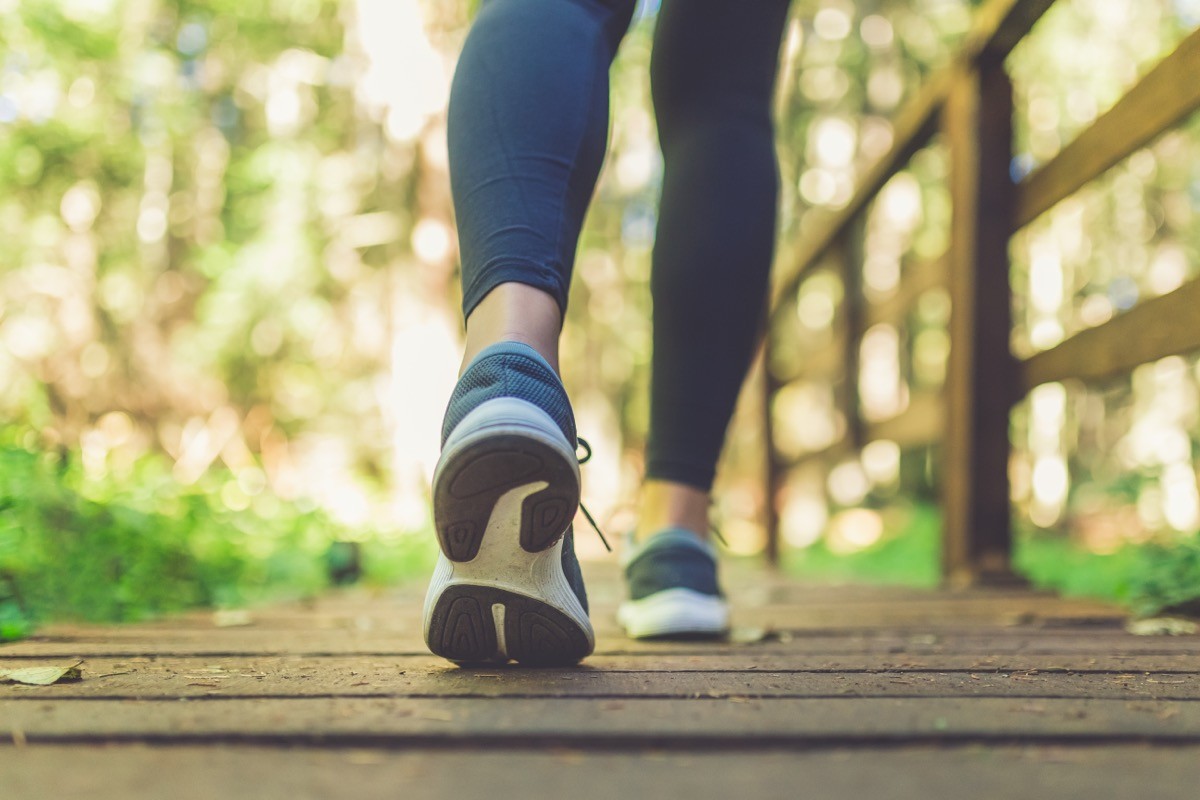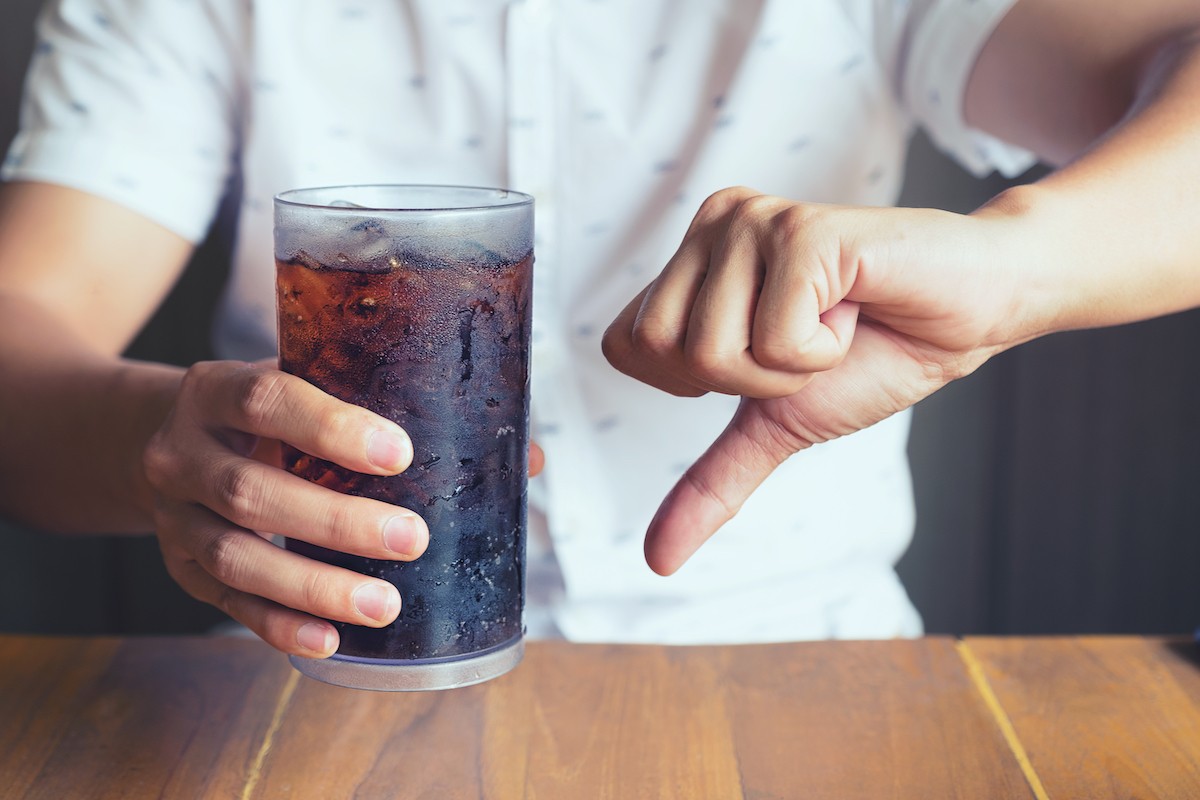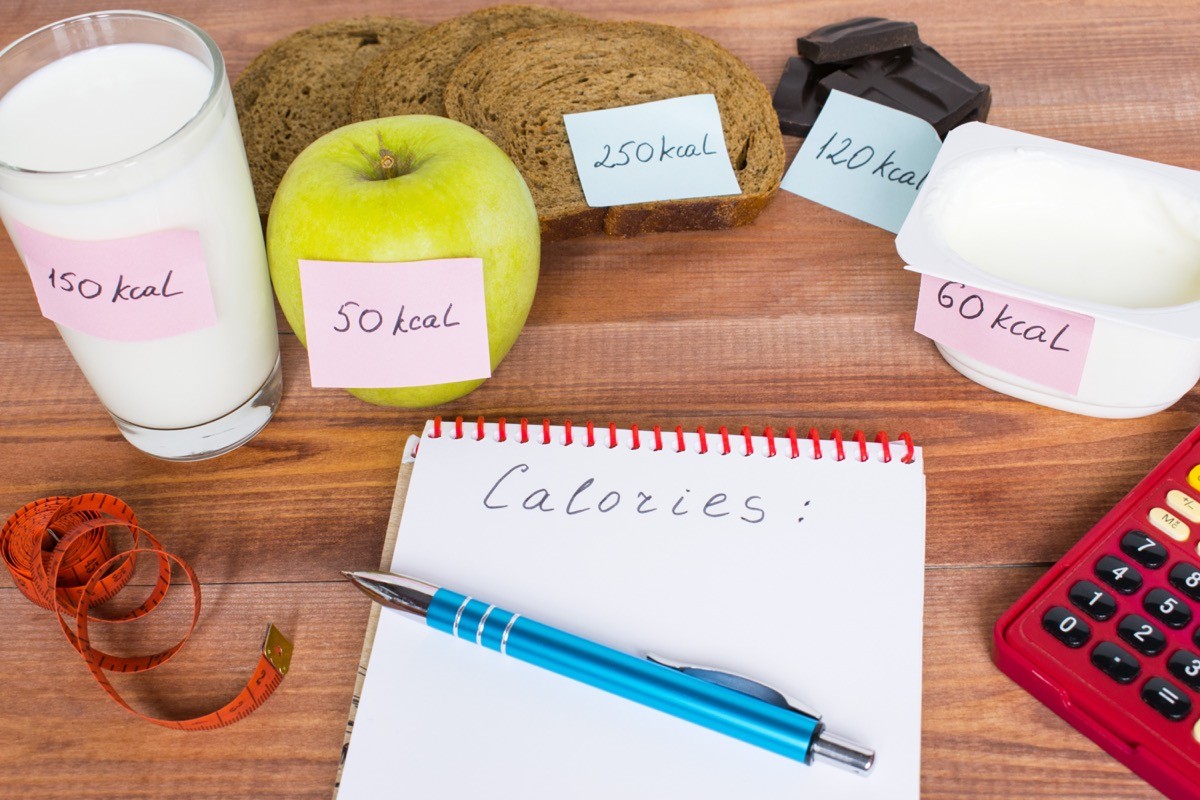Fitness Trainer Shares 5 Things You Can Do Now to Lose 20 Pounds

Weight-loss progress can be stalled for a number of reasons, including lifestyle factors (poor diet, lack of sleep, and inconsistent exercise), medication side effects, changes in mental health (acute stress), and even your environment. However, there are minor adjustments you can make to help get back on track. In a viral TikTok clip, fitness coach Eric Roberts (@ericrobertsfitness) revealed five things you can start doing right now to lose 20 pounds. So grab a pen and paper, and read about his tips below.
RELATED: Woman Lost Over 100 Pounds With These 5 High-Protein Snacks From Costco.
1
Start going for long walks outside.

“I’ve said it before and I’ll say it again, walking is hands-down the best exercise for fat loss,” Roberts told his followers. “Not only does it increase your metabolism, but it means you’re outside, which means you aren’t inside eating food.”
According to Mayo Clinic, 30 minutes of brisk walking could help you burn about 150 calories per day from exercise. It goes without saying that the quicker and further you walk (AKA, the distance and speed), the more calories you’ll burn. Just make sure to include a rest day in your workout regimen!
2
Eat a high-protein snack between lunch and dinner.

To combat late-night cravings, Roberts recommends eating a high-protein snack in the afternoon between 2 and 4 p.m.
“A lot of people struggle with [food] cravings at night. But if you put in this high-protein snack, you will not be as hungry at night and you’ll stick to your diet better,” he explained.
Dietitian-approved high-protein snacks include plain, nonfat Greek yogurt with fresh fruit, hard-boiled eggs on avocado toast, cottage cheese, roasted chickpeas, and pistachios mixed with dried fruit, as reported by Forbes.
3
Stick to zero-calorie drinks.

Unless it’s a protein drink, Roberts suggests eliminating drinks with calories from your diet. This would include sodas, bottled juices and iced teas, sports drinks, energy drinks, and all forms of coffee—unless you drink coffee black. And, don’t forget beer and cocktails, too.
RELATED: Akkermansia Is Being Called a Game-Changer for Weight Loss.
4
Consume one serving of fruit and vegetables per day.

According to the American Heart Association (AHA), adults should consume four to five servings of both fruits and vegetables per day. However, Roberts instructed his followers to aim for at least one daily serving of each.
At a glance, five servings of fruits and vegetables may sound like a lot, but you’d be surprised to learn how attainable this is. For instance, eating an apple counts as one serving of fruit, as does a banana, four large strawberries, and half of a medium-sized avocado. Meanwhile, one serving of vegetables can look like half of a large bell pepper, five to eight broccoli florets, or one cup of raw leafy greens.
5
Don’t go too low in your calorie intake.

Calorie counting can be a slippery slope. Many people choose to use a calorie counting app to help track their weight-loss progress, but Roberts warned that a calorie-deficient diet can also cause more harm than good.
“Don’t go too low in your calorie intake,” he stressed. “You’re going to slow down your metabolism and you’ll be starving.”